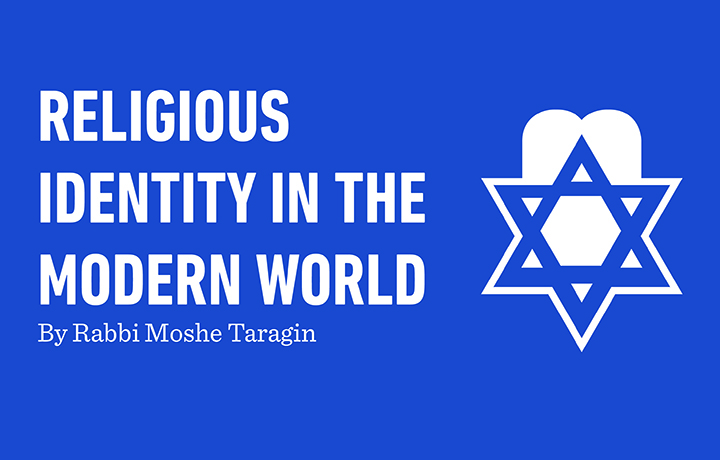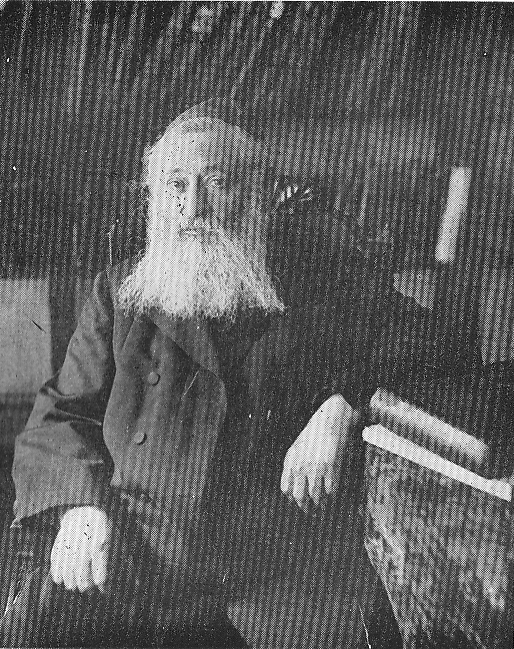Born From Tragedy
Shmulie Hartstein insists he’s a nobody. He’ll say it with sincerity, almost apologetically, as if it were a fact beyond dispute. But in a matter of weeks, this self-proclaimed “nobody” has become the reluctant heart of a movement reverberating through frum communities across the country. It’s not because he sought attention or planned a platform, but because he saw something too painful to ignore and did something so deceptively simple that it has shaken people awake. Through B’Sefer Chayim, the initiative he launched in the aftermath of a horrific tragedy, Shmulie has given voice to an uncomfortable truth and, in doing so, sparked a cultural shift. He didn’t set out to lead a revolution—he just couldn’t stand still. And that, perhaps, is exactly why it’s working.
It was a routine Friday morning. The fluorescent lights of Home Depot glared overhead as Shmulie Hartstein moved through the aisles, gathering supplies before Shabbos. His mind raced with the usual pre-Shabbos checklist—errands, preparations, loose ends. Then his phone rang.
On the line was a close friend, his voice trembling. “Shmulie,” he said, struggling for words, “There’s been a terrible accident. My brother-in-law was niftar last night in a car crash on the Garden State Parkway.” The words felt impossible. The niftar was young, healthy; a vibrant father and husband. His in-laws had just flown in from Florida for their grandson’s bar mitzvah. Instead of a simcha, there would be a levayah. The hall that was set to ring with mazel tovs and dancing would now echo with hespeidim and heartbreak.
That Shabbos, the air in the niftar’s home was thick with silence, broken only by muffled sobs. At one point, someone began singing “Mimkomcha,” the niftar’s favorite niggun. Others joined in, voices cracking. “The tears just flowed,” Shmulie recalls. “It was heartrending.”
Shivah began Sunday. Alongside raw grief came urgent financial fears. A fundraising campaign was launched for the almanah and her children. Shmulie sat in the shivah house and watched the family fight two battles at once: crushing loss and terrifying uncertainty. “Who would support them? How would they pay the mortgage? What about the children’s weddings?”
The devastation was compounded by helplessness. Grieving was eclipsed by the avalanche of bills and worries. Shmulie couldn’t shake the image of a young widow, suddenly both mother and father, provider and comforter, sitting alone at her table, wondering how to hold her family together.
The community rallied, as it always does. Links were shared, meals delivered, donations collected. But Shmulie kept thinking of the moment when that support would fade—when campaigns slowed, when neighbors moved on, and when the family would still need to keep the lights on, pay tuition, and live with dignity. Who would carry them then?
That week, clarity struck. He couldn’t change the past. But could something have softened the blow? One answer stood out: life insurance. It wouldn’t erase the pain, but it could have removed the panic. “It doesn’t take away the heartbreak,” Shmulie explains. “But it takes away the terror of not knowing how your family will survive.”
He realized too many people either lacked life insurance or had never seriously considered it. The reasons varied—discomfort, procrastination, financial pressures—but the risk was the same. In a single moment, a family could be left not only grieving, but destitute.
That was the moment B’Sefer Chayim was born. Its name—“In the Book of Life”—carries both hope and accountability. It is a tefillah, but also a charge: we daven to be written in the Book of Life, but we must also act with achrayus, ensuring our families are protected if the unthinkable happens.
Shmulie began speaking to friends, rabbanim, neighbors—anyone willing to listen. He met a mix of interest and unease. Many admitted they had thought about life insurance but hadn’t acted. Others confessed they didn’t know where to begin. The more he probed, the clearer it became: this wasn’t just an individual oversight—it was a communal blind spot.
And if no one else was going to speak about it, Shmulie would.
From its very beginning, B’Sefer Chayim has stood apart. It isn’t a brokerage, it doesn’t push products, and no one collects commissions. It’s not a business at all—it’s a raw, urgent, unfiltered mission to wake people up before it’s too late.
What began as a handful of phone calls and impassioned conversations quickly grew into a movement. Flyers appeared in shuls, WhatsApp statuses carried sobering reminders, and rabbanim added their hadrachahand support. Soon, the questions started pouring in: What kind of policy do I need? How much coverage is enough? Where do I even start?
B’Sefer Chayim doesn’t sell policies or recommend brokers. Instead, it does something more powerful: it starts the conversation. By telling real stories and stripping away the stigma, it has transformed a once-taboo topic into a communal cheshbon hanefesh. Slowly, people are beginning to see life insurance for what it really is—not a business transaction, but the most basic form of hishtadlus to protect loved ones.
For many, though, the very words “life insurance” still trigger discomfort. Some worry it invites an ayin hara; others fear it signals a lack of bitachon. The unease is real. Shmulie says he hears it often. “People think preparing for the worst shows weakness in emunah,” he explains. “But it’s the opposite. It’s hishtadlus.”
And there’s the financial barrier. With tuition, rent, and simcha expenses already straining families, another obligation feels overwhelming. Life insurance can seem cold, corporate, even alien—a bureaucratic answer to an achingly human concern. Yet B’Sefer Chayim forces the most basic question: If not you, then who? If you’re gone tomorrow, who will care for the people you love most?
It’s not about predicting tragedy. It’s about refusing to abandon your family to its aftermath. More and more, life insurance is being reframed not as morbid or unnecessary, but as a simple standard of responsibility—no different from health insurance, locking your doors, or buckling your child’s car seat.
As a growing chorus of rabbanim lend their support, the cultural narrative is shifting. Ignoring the conversation doesn’t reflect strength; it reveals a blind spot. And when that blind spot becomes a chasm, it’s not abstract hashkafos that suffer—it’s families.
The financial toll of losing a family’s primary breadwinner is staggering, yet it remains one of the least prepared-for realities in frum life. Mortgages, tuition, groceries, health care—none of it pauses for aveilus. The bills keep coming, indifferent to heartbreak.
The emotional toll is just as heavy. Children grieving a lost parent face new instability at home, while the surviving spouse must juggle caregiving with sudden financial responsibility. For some, that means returning to full-time work under crushing emotional strain; for others, it means sinking deeper into debt.
Rivky* knows this pain all too well. Just after Shavuos, she sat at her kitchen table, opening another bill she couldn’t pay. Only weeks earlier, her husband Shimon*—a beloved rebbi—had been helping their children with homework. Now, she was alone with five children, a mortgage, and no safety net. “The food stopped coming. The phone calls stopped. But the bills didn’t,” she said.
Her story isn’t unique. Too many almanos quietly endure the same spiral. One pawned jewelry to heat her home. Another couldn’t make her son’s bar mitzvah. These aren’t rare tragedies—they’re the predictable result of never having “the conversation.”
B’Sefer Chayim doesn’t share these stories to shock. It shares them to stop new ones from being written. Because life insurance isn’t a luxury, but a life raft, and is often the only barrier between dignity and devastation.
From its beginnings in a single shivah house, B’Sefer Chayim has grown into something far larger than Shmulie ever imagined. With no advertising budget, no organizational machinery, and no polished marketing strategy, the movement has spread on its own—carried by word of mouth, WhatsApp messages, and private conversations.
Men who had never given life insurance a thought are beginning to call brokers, realizing they had already waited too long. What started as whispers of discomfort has become a chorus of recognition: the silence around life insurance has cost too much, for too long.
There is no brand, no campaign, no gimmick. Just a message that resonates because it is real. And now, one family at a time, people are taking the step that ensures their loved ones are safeguarded. One by one, they are inscribing themselves B’Sefer Chayim.















